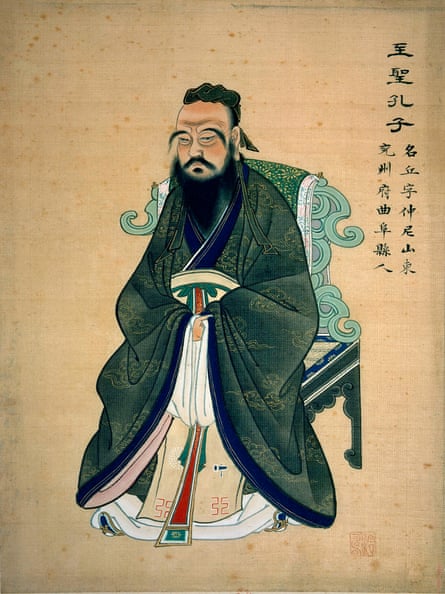Ancient Greeks often wondered whether non-Greeks could do philosophy. Some thought the discipline had its origins in the wisdom of Egypt and Mesopotamia. Some counted itinerant Scythian sages or Jewish preachers as philosophers. Others said no: whatever the intellectual merits of neighbouring peoples, it is a distinctively Greek practice. A new, angrier version of that ancient debate has arisen amid the culture wars of the last 50 years. Is philosophy an exclusively western phenomenon? Or is denying it to non-western peoples a form of neocolonialism? Or does the imperialism lie, rather, in folding non-western thought into a western category? Difficult questions, and the answers are not always obvious.
Julian Baggini’s contribution is an engaging, urbane and humane global history. “History” here is a misnomer: this is not a systematic, chronological exposition of different intellectual traditions (anyone wanting that is better off with Peter Adamson’s podcast series Philosophy Without Any Gaps https://historyofphilosophy.net/). Baggini’s strengths lie not in history (as is revealed, for example, when he ill-advisedly ticks off the Greek archaeological authorities for not advertising the Areopagus as the site of Socrates’ trial) but in a clear-sighted ability to boil complex arguments down to their essentials, and so to allow many different voices from across the world to converse in a virtual dialogue.
In his view, people everywhere grapple with the same moral questions, which are fundamentally about balancing contradictory imperatives: individual autonomy versus collective good; the social need for impartial arbiters of truth versus awareness of subjective experience; adherence to rules versus commonsense flexibility; and so forth. The differences between people lie not in the issues they face, but in the positions they end up adopting on the scale between the extremes. The analogy he draws is with a producer in a recording studio: “By sliding controls up or down, the volume of each track can be increased or decreased.” All cultures play the same song, but some prefer the cymbals higher up in the mix.
His conception of philosophy is not a narrowly academic one. We act as philosophers whenever we take a moral decision. Academic philosophies are bellwethers of the popular mood, and vice versa. For instance, the most influential philosophical tradition produced by the 20th-century US was the pragmatism of Richard Rorty, arguing that truth is merely what works best as truth for a given community. Baggini connects this to “something in the American psyche”, a “folk pragmatism” that “is unconcerned with intellectual niceties and focused on solutions”. Every culture has its philosophies, in the form of characteristic tendencies in decision-making. Philosophies are embedded in the material fabric that surrounds a people, in its architecture, its utensils, its experience of landscape.

The focus on regional traditions can inevitably lead to caricatures. When confronted with a picture of a circle, we are told, “a westerner sees first and foremost a circle, the round line. A Japanese sees at least as immediately the space contained within the circle”. Well maybe, but it reads a little like gap-year ethnography. More awkwardly, he writes about his frustration at a meeting of the Indian Philosophical Congress, where “extreme deference was shown to invited speakers and grandees”, leading to rambling, over-running speeches; such “fawning”, he argues, is connected to an emphasis in Indian philosophy on pratyaksa, the insight that comes to the wise as a result of long experience and practice. But to be fair, he repeatedly strives to break down simplistic cultural oppositions. Polarities are sketched not as ends in their own right, but as starting-points on a voyage to a more sophisticated understanding. Focusing on distinctions between East and West does not just ‘help to understand our differences, it points us to similarities which enable us to see these differences in more nuanced and sympathetic terms’.
The book as a whole represents a covert plea for dialogue, compromise and humility. Time and again, Baggini exhorts us to follow the middle path between extremes, a principle that he sees as central to the philosophy of both Aristotle and Confucius. Sometimes these extremes map on to geography, as when he proposes that “it should be possible to avoid the excesses” of western “atomism without adopting wholesale an eastern-style relational conception of self”. But more often than not, what he advocates is simply a rebalancing, via greater self-consciousness about our moral choices. You may have good reasons for choosing personal freedom over obligation to the collective – but other ethical options are available.
Global philosophy remains a paradox, and Baggini knows it: “To restrict philosophy only to that which falls under the purview of western philosophy is hopelessly narrow … However it can be difficult to get over our preconceptions of what philosophy must look like.” Spot on. For all that he fully acknowledges non-literate peoples have complex, sophisticated modes of abstract thought, he is drawn primarily to comparisons between the classical philosophies, the ancient literary traditions of China, India and Greece and their modern successors. It is hard to shake the sense that he finds some cultures’ philosophies more philosophical than others’. But my hunch is that he would be happy to acknowledge the partiality of his account; certainly better to do this than to lay spurious claim to some kind of universality.
No philosophy, he argues in conclusion, can escape the peculiarities of its own place; even global philosophy must come from somewhere. The question is not where you’re from, but where you’re heading. In our embattled age, Baggini’s self-awareness, acuity and willingness to listen and learn point valuably away from parochial myopia and towards productive dialogue.

Comments (…)
Sign in or create your Guardian account to join the discussion